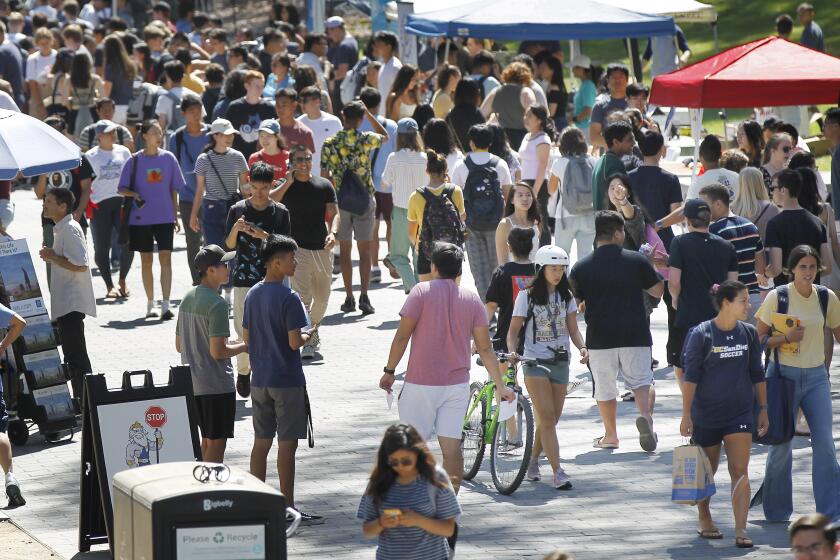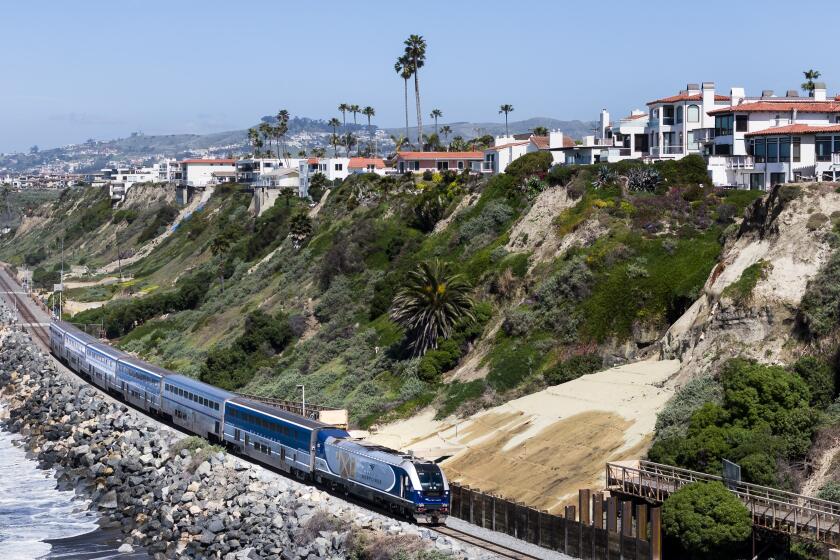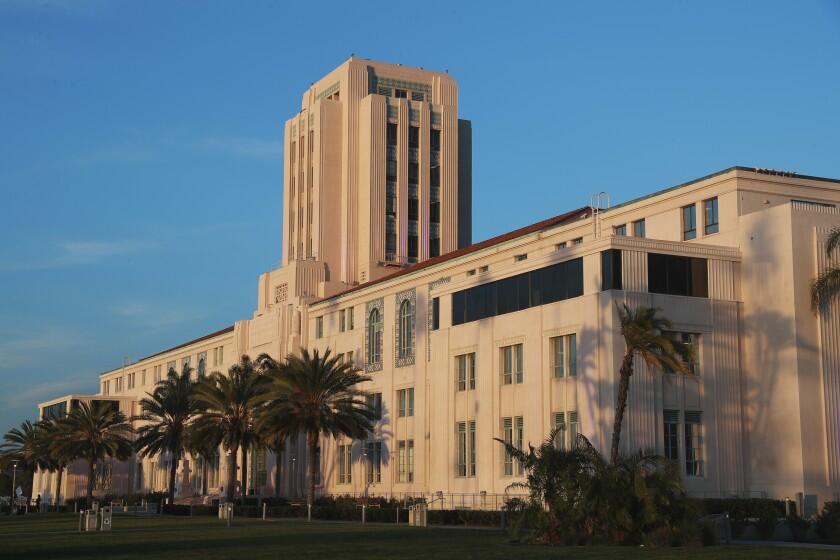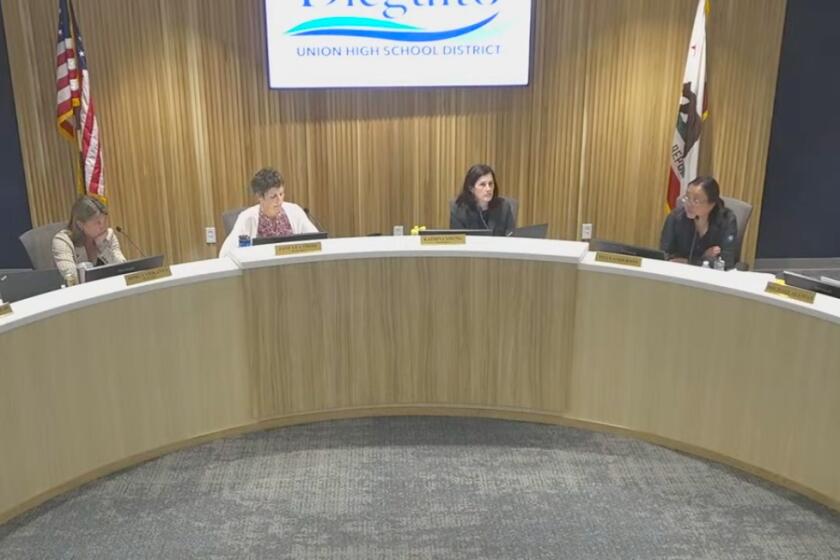City council to decide marijuana regulations
A decision on whether to cultivate marijuana and allow delivery services in Encinitas will be left to the city council in October after the task force assigned to the issue was left undecided at its final meeting Sept. 28.
The Adult Use of Marijuana Act subcommittee was created in February with directions from the Encinitas City Council to return with information about cultivation, delivery and whether the city should move forward with a scientific survey.
Deputy Mayor Tony Kranz, who sits on the task force with council member Joe Mosca, said he was generally in favor of cultivation to support local farmers. But Mosca — concerned about general safety, banking regulations and a possible ballot measure from a proactive group — said the city should ban the substance outright. Kranz said he could support delivery for medicinal uses only, but neither council member thought a survey could benefit the city.
The group was presented with two possible ordinances at the meeting. One, at 13 pages long, would permit cultivation on agriculturally-zoned properties in the city, while the other, at five pages, would essentially maintain Encinitas’ status quo by not allowing cultivation, storefronts or medicinal dispensaries citywide.
Because Kranz and Mosca could not come to an agreement at the meeting, the decision will now be left to the city council. The task force said it expects the council to make a decision sometime in October at a special meeting, to allow time before a Jan. 1 state deadline.
Hundreds of residents flooded the council chambers at the meeting, taking nearly three hours of public comments, both for and against marijuana in the city.
Bob Echter, of Dramm & Echter Inc. in Encinitas, pushed for Encinitas to allow farmers like him to cultivate the plant on their properties to keep their businesses booming.
Echer said he would like to grow on a small portion of his 800,000-square-foot agricultural property to offset threats to the farming industry, like the rise of minimum wage and the scarcity of water.
Kranz said he wanted to support farmers like Echter.
“We are a historic agricultural community, and we have a group of people who have been committed to growing and keeping our agriculture industry alive,” he said. “We, as a state, have legalized a new crop. For me, it makes sense to not tie the hands of our growers and let them get into that market.”
Other proponents also argued delivery services could be beneficial to medical patients, that marijuana has been in Encinitas for years — whether or not opponents “realized it” — and cultivation could provide tax money for other city projects, like train track trenching.
Encinitas residents also largely approved marijuana with the passing of Prop. 64, which legalized the recreational use of marijuana in California in November 2016, proponents argued at the meeting. About 65 percent of people voted in favor of the initiative.
But opponents urged the council to not allow marijuana in the city to prevent access for children, crime and more DUIs.
Maureen “Mo” Muir, wife of council member Mark Muir and board member on the San Dieguito Union High School District, as well as Leslie Schneider, who sits on the Encinitas Union School District Board, challenged Echter.
They said marijuana could negatively influence the city’s youth, bring in crime and hurt property values.
Jason Yarbraugh, who spoke for Muir and Schneider during a rebuttal period against Echter, said the city should not let the benefits of a few people negatively affect the rest of the city. He called out Kranz for having a possible bias, which Kranz disputed.
“This has kind of been the Bob Echter show for marijuana,” he said. “Were you elected to represent Bob Echter and his hundreds of employees, or were you elected to represent the citizens of Encinitas?”
Yarbraugh called out Kranz for having a possible bias toward Echter, which the deputy mayor disputed.
Others said they were not in favor of marijuana in Encinitas because of decreasing property values if they live near the agricultural sites that would grow it.
Richard Bodger, a local organic avocado grower, said some farmers would rather not grow marijuana, and the city allowing farms to decide if they want to grow it could create unfair competition.
He said farmers should instead focus on growing largely imported, expensive fruits and vegetables instead.
“Our cultural heritage is in food,” Bodger said. “My new motto is grow organic food in Encinitas, not pot.”
The city was challenged last month when the San Diego-based Association of Cannabis Professionals (ACP) informed the city of its intent to circulate a petition that, if it received enough signatures, would place a ballot measure for a local election to have residents decide if cultivation and storefronts should be allowed in Encinitas.
The ACP will have to obtain about 6,000 signatures from Encinitas voters to quality for an initiative on a special election ballot or about 4,000 signatures for a general election initiative, Mosca explained in a recent interview prior to the meeting.
Sapphire Blackwood, who works with the ACP, said the group would rescind its ballot measure should the city decide to pass marijuana regulations, including solely allowing cultivation in the city.
Mosca said the city could use the possible ballot measure to see what the residents want.
“It wouldn’t be my place as a city council member to say no to a ballot measure. If they gather the signatures, it would go out to a vote,” he said. “It’s all over the place in terms of what the will of the people is. If it’s going to go to the vote of the people then I would yield to that.”
Kranz argued there are too many risks if Encinitas took that route.
“I personally hope the council will take action and end the petition because it also calls for retail sales,” he said. “It would be expensive for the city to conduct an election.”
Sign up for the Encinitas Advocate newsletter
Top stories from Encinitas every Friday for free.
You may occasionally receive promotional content from the Encinitas Advocate.






